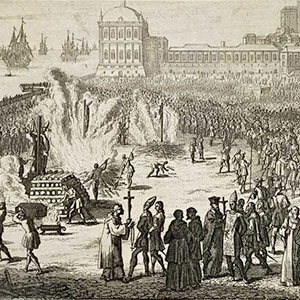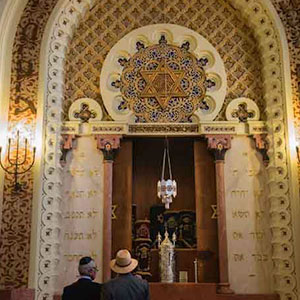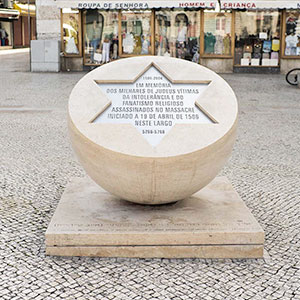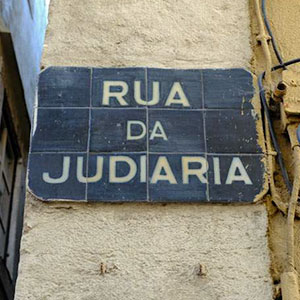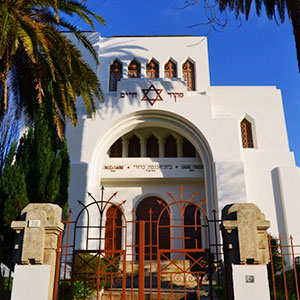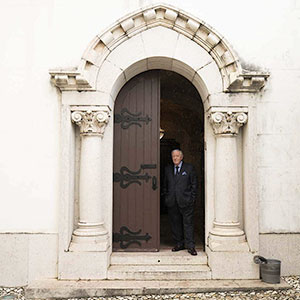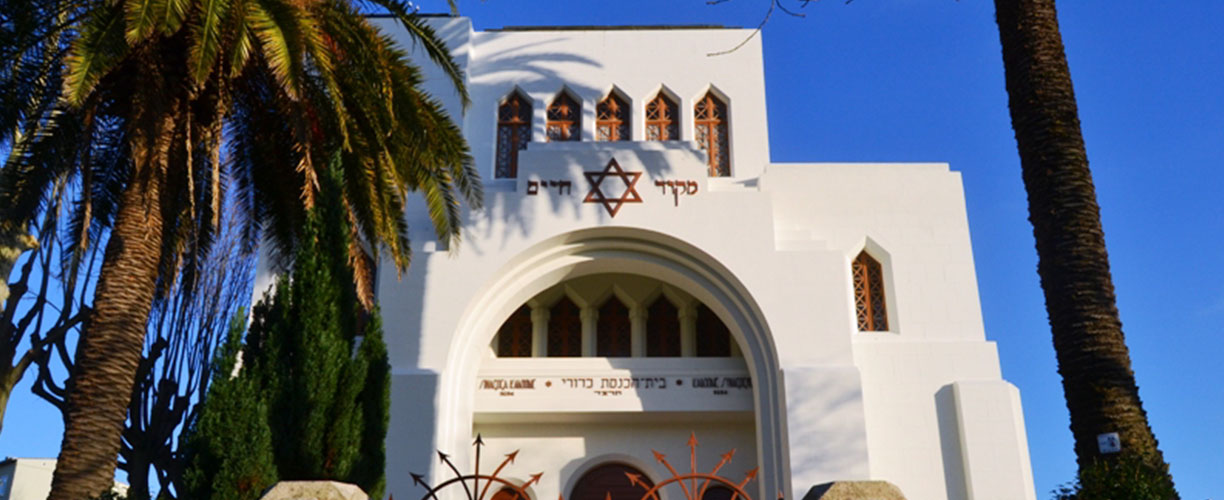
Turning Portuguese
Portugal is offering citizenship to the descendants of Jews who were forced to leave the country hundreds of years ago.
Thousands of people across the world are taking up the opportunity.
Jewish Heritage Alliance would like to share this exceptional, well-written article prepared by Naomi Grimley of the BBC that talks about the Jews who come home to Portugal. The BBC staff reached out to JHA for assistance in developing the story and we introduced them to Ruth Calvao, a Strategic Partner and member of JHA Executive Committee https://jewishheritagealliance.com/our-executive-committee/#OurTeam.
Below are some of the main excerpts of the article. You can read the entire article here: https://www.bbc.co.uk/news/resources/idt-sh/Turning_Portuguese?fbclid=IwAR0AKrZy-UblQodwcR0woqMsRZYeJwwaizG3Pw4bIsu7OwshGB6xaN7-iio
The article starts with a story about Alex, a 32-year-old British lawyer of Portuguese Jewish ancestors that arrived at the UK in the early years of the 20th Century to escape political and civil unrest in Europe.
The article then shifts to discuss the Jewish heritage of Portugal (and Spain), and remnants of that period. She visits the Jewish section of the city as she walks the winding, cobbled streets of Lisbon’s Alfama district. Naomi described that tourists are drawn to the area for a sense of what the medieval city would have been like (as well as some celebrity spotting - Madonna has a house in Lisbon, and can occasionally be seen eating in local cafes).
She is accompanied by our own Ruth Calvao, from the Centre for Jewish Studies Centre in Trás-os-Montes (an ally of JHA) who points out a very old, rough-hewn stone wall providing shade from Lisbon’s strong spring sun. Despite its obvious age, it still looks like it could withstand any kind of modern military attack.
This is the site of the one of the city’s old Jewish quarters, nestled into the side of the old city wall. A street sign says Rua da Judiaria. The story that ends with Alex Abrahams begins in neighbourhoods such as this.
Turning to the historical attributes of the region Naomi discussed the fact that in 1492 the Spanish monarchs, Ferdinand and Isabella, issued the Alhambra Decree, expelling Jews from the Spanish kingdoms of Castile and Aragon. Tens of thousands of Jews sought refuge over the border in Portugal.
A Portuguese priest, Andrés Bernáldez, observed at the time how the refugees “walked along the roads and over the fields with great difficulty and misfortune, with some of them falling, some of them dying, others being born and every single Christian felt sorry for them.”
At the peak of this influx, it’s estimated that up to a fifth of Portugal’s entire population was Jewish. Ruth - who was born into Catholic aristocracy but later converted to Judaism - describes the refugee crisis: “All the Jewish quarters were overflowing because of all the people coming in all the time.”
In 1495, Manuel I ascended to the Portuguese throne. Although first seen as friendly towards the Jewish population, Manuel wanted to marry Ferdinand and Isabella’s daughter, the Infanta of Aragon. As part of the marriage contract, the Spanish rulers insisted Manuel copy their strictures on the Jews of Portugal.
On 5 December 1496, Manuel ordered the expulsion of all Jews who would not convert to Catholicism. Some did leave but as the policy took force, Manuel vacillated and even sought to delay the departure of the Jews.
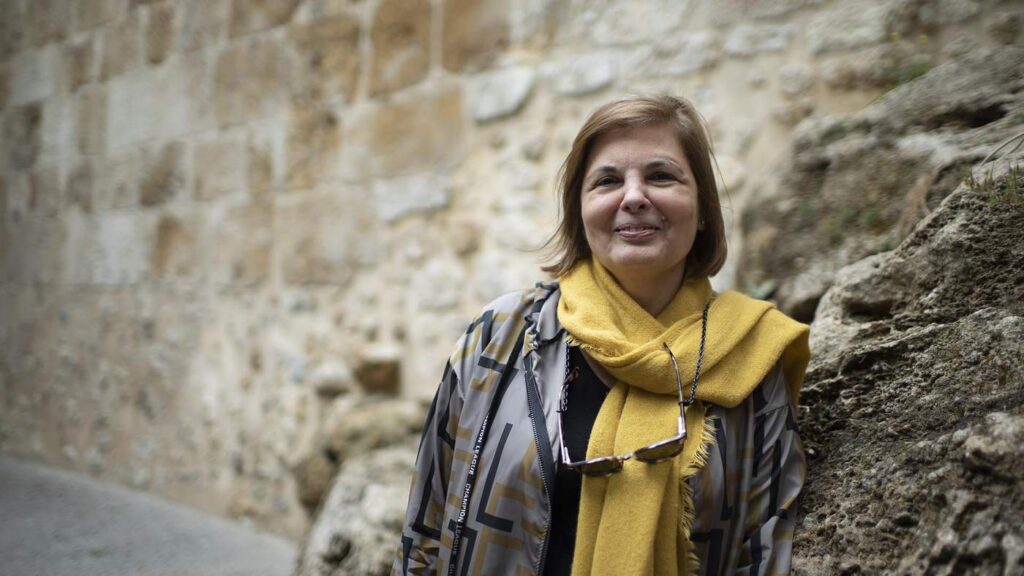
Ruth Calvao
“Manuel was very ambiguous about this,” says Ruth. “He knew much of Portugal’s finances were in Jewish hands – such as the ports, the trades and the construction of the caravels (ships) that helped with the discovery of the New World. He didn’t want the Jews to leave so that’s why he staged forced conversions instead.”
In the center of Lisbon, Ruth shows where a mass conversion involving 20,000 Jews took place in late 1497. Herded together in a courtyard, they were doused with baptismal water. These converted Jews became known as “New Christians”
Despite their conversion, New Christians faced limitations on their legal, financial and civil rights, as well as threats to their safety. Under Manuel’s heir, João III, the Inquisition was set up in Portugal in 1536, focusing on New Christians suspected of secretly practising their old faith. It’s thought more than 40,000 individuals were charged by the Inquisition, which lasted until 1821 although the last public trial was in 1765.
In 1506 a Lisbon mob invaded one of the city’s old Jewish quarters and massacred around 3,000 people – including women and children. It’s commemorated by a monument outside the Church of São Domingos - half of a stone orb with a metal Star of David set in it. It was unveiled in 2006 and calls for a spirit of tolerance in place of fanaticism.
The massacre set off another wave of emigration. The Ottoman empire, under Sultan Bayezid II, saw the dividend in offering refuge to exiled Jews - including Alex’s ancestors in what was then Salonica.
In 2013, Portuguese MPs unanimously passed a law allowing the descendants of Sephardic Jews to apply for nationality in Portugal. The bill was the idea of the country’s former health minister, Maria De Belém Roseira.
“When I was in high school and I read history, I never understood why Portugal had institutionalised the Inquisition.” she says. That nagged away at her over the years until she decided to do something about it.
“You cannot make things the same as before. But you can say it was a mistake and it was unacceptable. When we have the power to repair an injustice, we should do that.”
Maria insists that the events of the 15th and 16th centuries are still relevant to today’s politics: “We cannot sign international treaties on human rights, tolerance and equality if we persecuted people because of their beliefs. In politics, you have to give the right signs.”
Spain also passed a similar law but it decided to place a time limit on applications and it required applicants to pass a language test. “Our law was broader,” says Maria, “This was something that happened five centuries ago. So we wanted to give people the opportunity to look into their roots and their families. This is not a problem of time.”
For that reason, many Sephardic Jews have chosen to apply for Portuguese citizenship. In any case, many of their ancestors would have crossed the border from Spain to Portugal as refugees.
Today Ruth has lots of groups contacting her from these diaspora communities – especially from Turkey. She’ll be showing ten Jewish Turkish families around the Porto area this summer. “They really want to see their roots,” she says. “It’s so lovely.”
Turning her attention to the Jewish Community in Lisbon Naomi described the Lisbon Synagogue built in the early 1900s appropriately enough by Jews who had returned from a long exile in Morocco and Gibraltar. These returning Jews originally worshipped in their homes but as their confidence as a community grew, so did their desire for a proper place of worship.
The building has wooden pews with 12 elegant pillars round the edge supporting an upper gallery. At the front, there’s a frieze of glittering mosaics over the ark which contains the Torah scrolls. Above that, carved into stone, is the inscription in Hebrew: Know Before Whom You Stand.
The staff have been surprised by the number of applications for Portuguese citizenship. To help the government, they have been issuing certificates to those who can prove they have Sephardic ancestry. After that, applicants must apply via the Ministry of Justice for the formal naturalisation process.
Gabriel Steinhardt (below) is the President of the Jewish community in Lisbon. Although he himself is descended from Ashkenazi Jews (from eastern Europe and Russia), he was born in Portugal and so the new nationality laws have an emotional pull.
“I call it a law of return,” he says, “allowing Jews to get back a passport that they normally would be holding if their ancestors had not been forced to leave. It’s the closing of a circle of reconciliation between the Jews and Portugal.”
Since 2015 (when the laws came into effect) around 30,000 people have applied to the Ministry of Justice. Out of them about 25% - or just over 7,000 - have already got Portuguese nationality. The largest group of applicants is from Israel, then Turkey and Brazil.
One of those who knows most about the motivations of applicants is Yoram Zara, an Israeli immigration lawyer.
He says large numbers of Jewish Turks applied early on because of political instability at home. “They were worried about their own well-being; about Turkey becoming less democratic; more Islamic and less predictable. They wanted an insurance of sorts.”
As for the Israeli applicants, Yoram says often they apply because “an EU passport is a bit of a status symbol – to walk through the short line at border control”. But he also adds a more serious point: “It wasn’t that long ago that Jews were persecuted and if you had the right papers you could escape your destiny. So there’s a feeling that having another identity can’t hurt.”
What about Brexit and British applicants?
“The day the referendum results were announced my phone didn’t stop ringing and the emails didn’t stop landing in my inbox,” says Yoram. “It was a kind of panic.” He says it’s calmed down a lot now.
Gabriel Steinhardt also says that interest from the UK has not been that high: “The numbers are relatively small - just 1 or 2%. So we’re talking hundreds, not tens of thousands”.
The synagogue in Porto, which has dealt with many of the UK applications, says it’s approved 419 certificates of Sephardic ancestry to Britons since the law came into effect.
Proving Sephardic heritage can happen in several different ways. Many people have been able to draw up family trees using records from established Sephardic communities such as the Bevis Marks Synagogue in the City of London and the Portuguese Synagogue in Amsterdam.
If, like Alex, you have strong family links to such a community you might only require a letter from a Rabbi and a family document such as a ketubah or marriage certificate.
Gabriel Steinhardt has seen some British families trace their family roots right back to the 17th Century but he admits that is an exception. There’s even been some talk of individuals presenting rusty keys from ancient family homesteads as evidence.
“I know of at least two cases of Jews from Turkey that have kept keys from homes in Portugal and transmitted them over 500 years from generation to generation,” he says. “Obviously, those houses do not exist any more, nor do they know where the houses were. But it’s a very moving story.”
Other pieces of evidence sent in have included photographs of gravestones and recordings of songs sung by parents and grandparents perhaps in Ladino, Spanish or Portuguese.
By way of a demonstration, Rabbi Natan Peres from the Lisbon Synagogue sings a traditional table prayer in Spanish called Bendigamos or Let Us Bless: “It’s an example of how the Jews who left the Iberian Peninsula kept a cultural and spiritual connection back to their homelands.”
For the complete article and more information about Brits seeking to make use of the Portuguese Law of Return go to https://www.bbc.co.uk/news/resources/idt-sh/Turning_Portuguese?fbclid=IwAR0AKrZy-UblQodwcR0woqMsRZYeJwwaizG3Pw4bIsu7OwshGB6xaN7-iio
Picture 1: Engraving depicting the burning of heretics by the Portuguese Inquisition
Picture 2: Inside Kadoorie Mekor Haim Synagogue in Porto
Picture 3: A memorial to Jews massacred in 1506 at the Plaza Sao Domingo in Lisbon
Picture 4: This is the site of the one of Lisbon's old Jewish quarters.
Picture 5: Outside of Kadoorie Mekor Haim Synagogue in Porto
Picture 5: Gabriel Steinhardt is the President of the Jewish community in Lisbon
